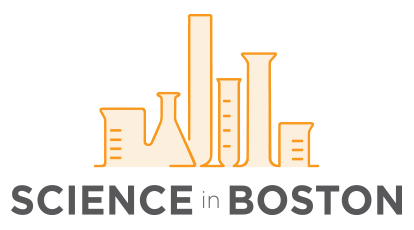Science Events in Boston
Stay up-to-date with all of the life science events taking place in the Greater Boston area with the Science in Boston events calendar! From academia to industry and biotech to pharma, our events calendar is your complete source for life science conferences, symposiums, networking, and workshops in Boston. We even cover science pub nights and science fundraisers!
If you’re interested in promoting your life science event on the Science in Boston events calendar, please use our event submission form.

- This event has passed.
CyTOF Analysis Workshop Series
September 9, 2019 - 5:00 pm - 7:00 pm
About this Event
Speaker: Emily Thrash, PhD, Scientist II, Dana-Farber Cancer Institute
Bio: Experienced Cancer Immunologist with a proven history of developing clinical trial correlative studies. Highly skilled in Flow Cytometry and CyTOF, especially with primary patient samples. Patient-oriented, results-driven research professional with a Doctorate in Biomedical Sciences, Immunology from The Ohio State University College of Medicine.
Abstract: CyTOF is revolutionizing correlative clinical trial studies allowing for deeper immune-phenotyping compared to traditional flow cytometry. Leveraging CyTOF technology, our group has previously identified biomarkers of response to anti-PD-1 therapy in melanoma patients. Building upon those studies, we have developed two CyTOF panels 1) Adaptive (CPB-A) and 2) Innate (CPB-I) that identify immune cell subsets and test biomarkers for response and resistance in patients receiving anti-PD-1 therapy. Here we present the validation of these panels, as well as our method pipeline for CyTOF panel development.
Speaker: Brandon Nguyen, Sr. Associate Scientist I, Bluebird Bio
Abstract: Mass Cytometry presents a unique opportunity to look at 40 antigens at once on a single cell basis, this is particularly useful when trying to phenotypically characterize a cellular drug product. Currently at bluebird bio there are three clinical phase cellular drug products that leverage autologous CD34+ hematopoietic stem cells edited with lentiviral vector. Because hematopoiesis is a very fluid landscape, we have developed a classification method to divide the CD34+ drug product into lineage specific progenitors and precursors with the help of high dimensional clustering. This characterization data set can then be used for correlative studies within each clinical trial and across multiple clinical trials. However, in order to ensure data integrity for meaningful comparative studies a reference must be used to track staining consistency of each antibody. This was found to be necessary as batch effects played an important role into the potential skewing of high dimensional analysis. Overall, longitudinal studies are a challenge due to batch specific staining variation, however the variation can be minimized by tracking a reference cell bank and strategic optimization.

